What the Color of Your Poop Means, According to a Gastroenterologist

There are lots of subtle ways your body gives you clues about your health, from your skin to your hair to your fingernails. But according to Joseph Salhab, MD, a gastroenterologist who posts on TikTok under the handle @thestomachdoc, you should also assess your excrement. “It sounds weird, but one thing everyone should do when they use the bathroom is take a quick look before you flush,” he says in a video. “You don’t have to stare at it—but your poop color can actually tell you a lot about your health.” Read on to learn the meaning behind what comes from your behind.
RELATED: 3 Things “That Will Make You Poop Instantly,” Gut Health Doctor Reveals.
Brown with a little bit of gray
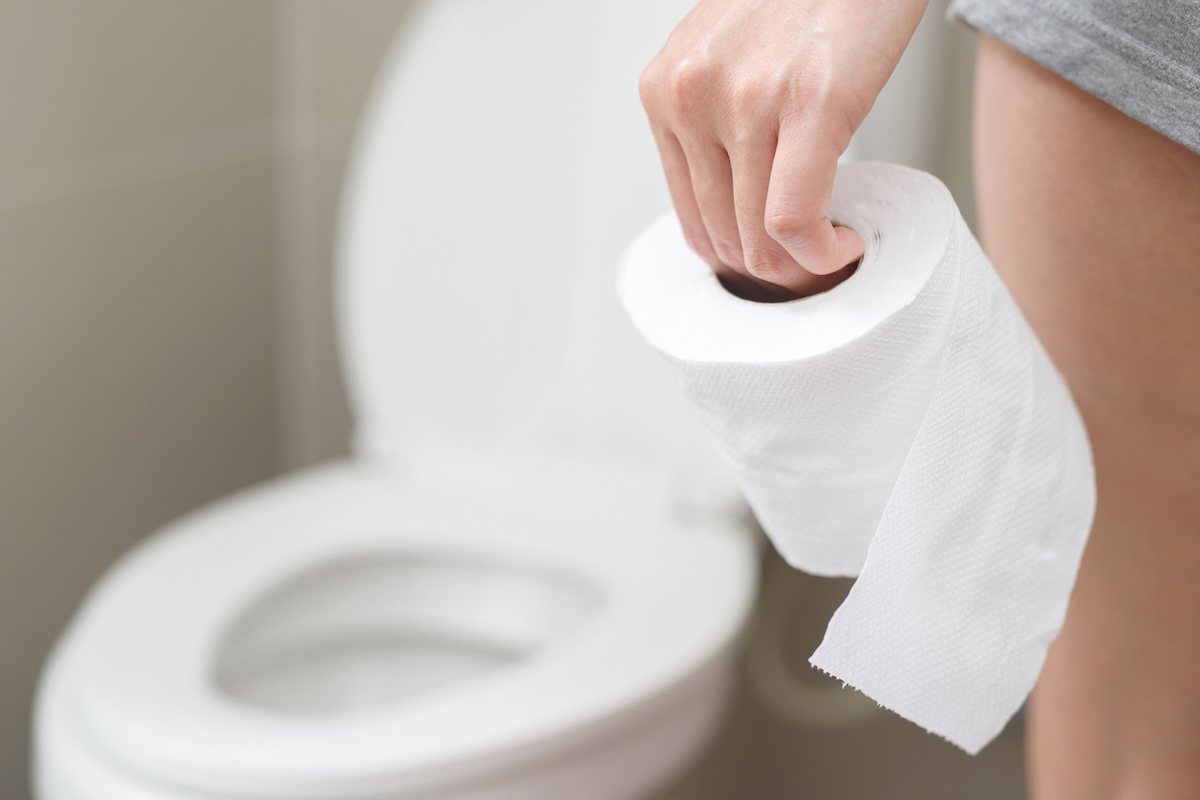
Salhab calls this “pretty normal,” so if you spot it in the bowl, your gut is telling you you’re doing OK.
“Stool color is generally influenced by what you eat as well as by the amount of bile—a yellow-green fluid that digests fats—in your stool,” writes the Mayo Clinic. “As bile pigments travel through your gastrointestinal tract, they are chemically altered by enzymes, changing the pigments from green to brown.”
This makes brown the healthiest color, with green also being fairly normal.
Yellow
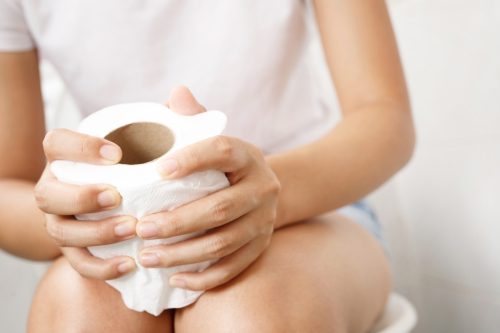
Take note if you regularly pass greasy, yellow stool. “You might have fat malabsorption,” says Salhab.
This could indicate something such as celiac disease or damage to the pancreas. According to the Mayo Clinic, the color can sometimes be caused by the consumption of gluten, which is found in several cereal grains.
RELATED: 6 Things Your Digestive System Wishes You’d Stop Doing, According to Experts.
White and chalky
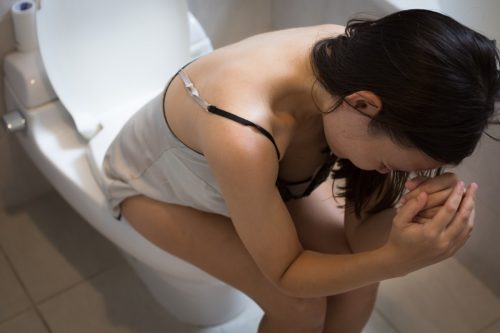
This could signal “an issue with your gallbladder,” says Salhab. So, what’s the connection between your stool and that organ?
According to the Mayo Clinic, white stool is caused by a lack of bile, which is produced by the liver and stored in the gallbladder. The path from the gallbladder to the small intestine can become blocked by either a gallstone or tumor and lead to this color stool.
Mucusy
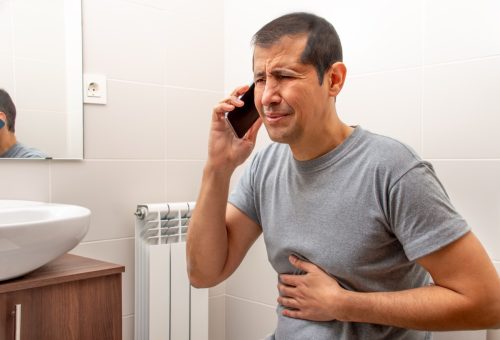
This type of stool could mean intestinal inflammation, explains Salhab. The Mayo Clinic says it’s worth bringing up to your doctor if you notice an increased amount of mucus in your stool or if it begins happening regularly. Your intestines could be irritated by something like Crohn’s disease, ulcerative colitis, or cancer.
RELATED: What Really Happens to Your Body If You Don’t Go to the Bathroom Every Day.
Dark and tar-like
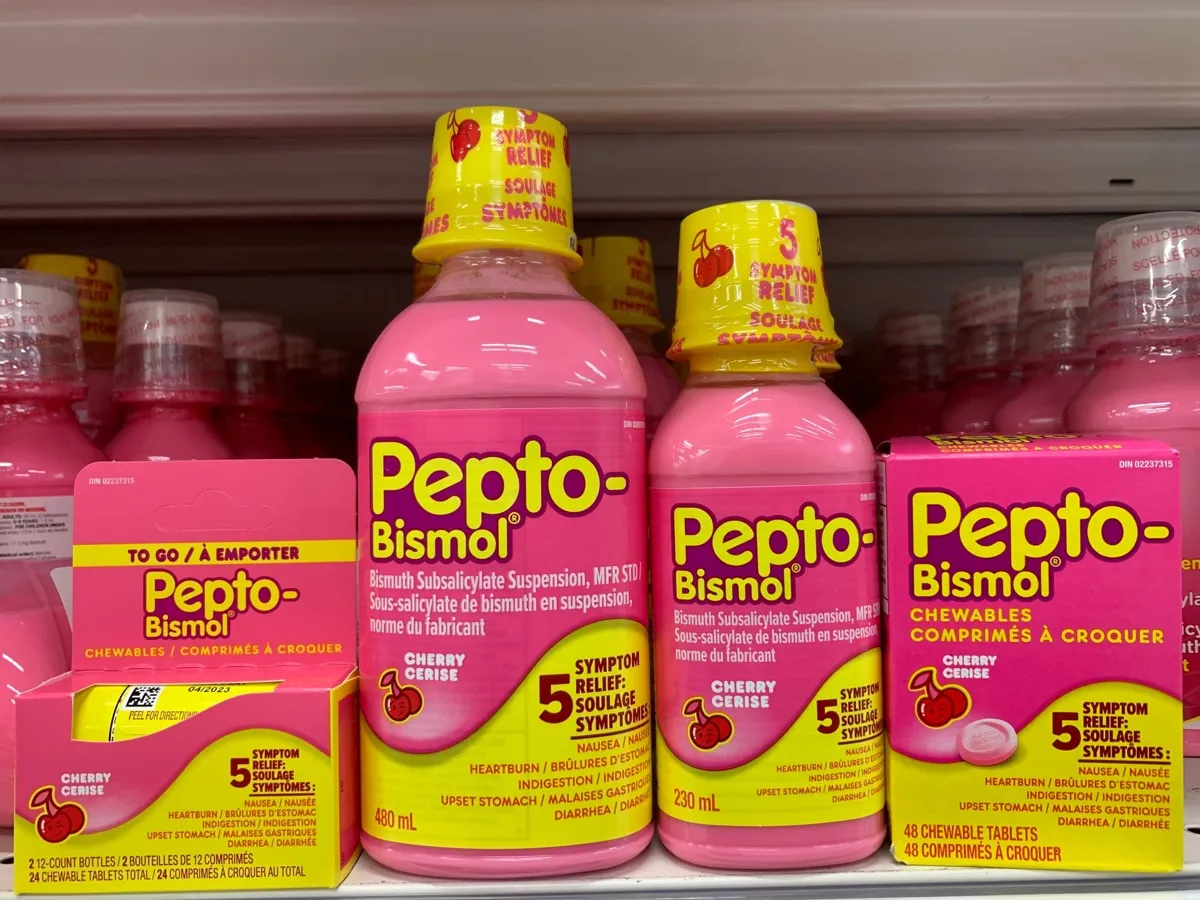
There are several potential causes for black or tar-like stool. “It could be due to iron or something like Pepto Bismol,” says Salhab. “A stomach ulcer that’s bleeding can look like that too.” Visit a doctor to understand the cause of your stool’s coloring.
Red

If you spot this color in the toilet, call your doctor immediately. “This could be blood and blood in the stool should never be ignored,” says Salhab. “It should always be investigated.”
Blood can get into your stool via bleeding in the lower intestinal tract, according to the Cleveland Clinic. It could be caused by something fairly benign, like hemorrhoids or an anal fissure, or could be a sign of something chronic, like irritable bowel syndrome, or dangerous, like colorectal cancer. Only your doctor can tell for sure.
For more wellness advice sent directly to your inbox, sign up for our daily newsletter.
Best Life offers the most up-to-date information from top experts, new research, and health agencies, but our content is not meant to be a substitute for professional guidance. When it comes to the medication you’re taking or any other health questions you have, always consult your healthcare provider directly.